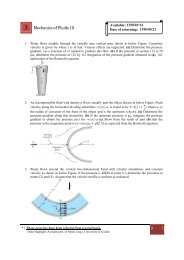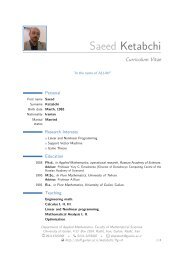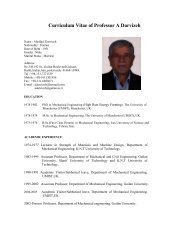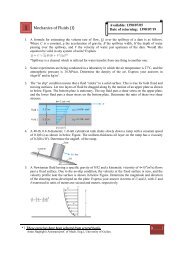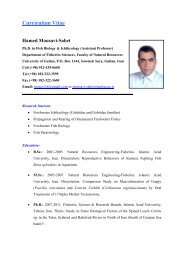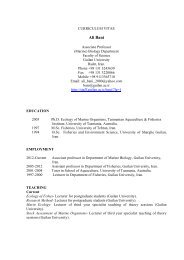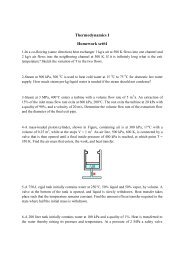Medical Tourism in Developing Countries
Medical Tourism in Developing Countries
Medical Tourism in Developing Countries
- No tags were found...
You also want an ePaper? Increase the reach of your titles
YUMPU automatically turns print PDFs into web optimized ePapers that Google loves.
Promot<strong>in</strong>g <strong>Medical</strong> <strong>Tourism</strong> ● 163currently promot<strong>in</strong>g medical tourism might <strong>in</strong> the future price themselvesout of the mass market (as S<strong>in</strong>gapore has already done).Bottom l<strong>in</strong>e: Both absolute and relative prices of medical services areimportant <strong>in</strong> determ<strong>in</strong><strong>in</strong>g demand for services. Both are subject to change,and the direction and magnitude of change, as well as its positive and negativeexternalities, must be carefully studied.Equality <strong>in</strong> Health CareGiven the low prices of its services, medical tourism may contribute to theequalization of health care. When <strong>in</strong>dividuals travel abroad for cheapermedic<strong>in</strong>e, they might be buy<strong>in</strong>g services they couldn’t afford at home. Inthis way, medical tourism is an enabler, open<strong>in</strong>g up medical care optionsfor a broad range of populations whose low <strong>in</strong>comes otherwise precludedit. An example illustrates this po<strong>in</strong>t: <strong>in</strong> the United States, a Nicaraguan-bornU.S. citizen works as a housekeeper for another Nicaraguan-born U.S.citizen. Both the housekeeper and her employer take their vacations <strong>in</strong>their home country. Both make use of affordable health care—the formerfor all her needs, given that she cannot afford private <strong>in</strong>surance <strong>in</strong> theUnited States, while the latter chooses elective surgeries that are, quitesimply, cheaper. In fact, some of those elective surgeries are so cheap theyare with<strong>in</strong> the means of the housekeeper, result<strong>in</strong>g <strong>in</strong> an equalization ofhealth-care services that could not have occurred <strong>in</strong> the United States.Another equity issue entails the elderly populations that live outside thecountry, such as <strong>in</strong> northern Mexico, <strong>in</strong> order to stretch their social securitychecks. There are numerous attractive retirement dest<strong>in</strong>ations where thecost of liv<strong>in</strong>g is low and the elderly from the more developed countries,liv<strong>in</strong>g on a fixed <strong>in</strong>come, can enjoy a higher standard of liv<strong>in</strong>g than athome. While the British retirees who live <strong>in</strong> Spa<strong>in</strong> have access to healthcare, Americans <strong>in</strong> Costa Rica have a harder time fight<strong>in</strong>g the system.If they can receive their social security check anywhere, why not Medicarereimbursements?Bottom l<strong>in</strong>e: <strong>Medical</strong> tourism might serve as the great health-care equalizer,enabl<strong>in</strong>g people to buy medical care previously beyond their reach.Health Sector CostsIn the last two decades of the twentieth century, medical tourism took offlargely as a result of the ris<strong>in</strong>g health care cost <strong>in</strong> the more developed countries(accord<strong>in</strong>g to Vega, “Worldwide restructur<strong>in</strong>g <strong>in</strong> the health sector dueto the high costs of medical services, particularly <strong>in</strong> developed countries, has



